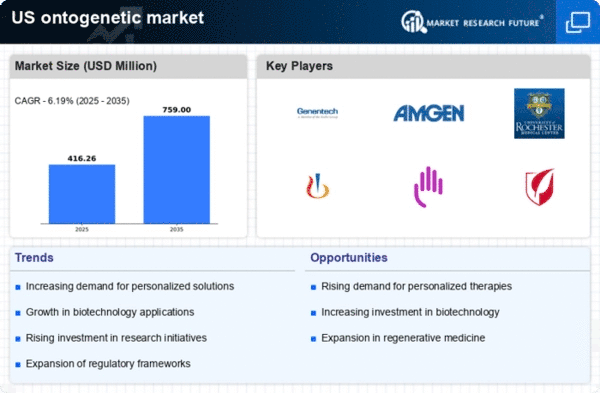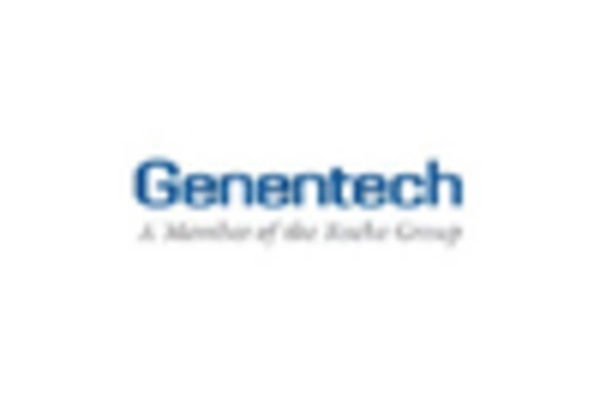Evolving Consumer Preferences and Trends
The ontogenetic market is significantly influenced by evolving consumer preferences and trends. As societal values shift, consumers are increasingly seeking products that reflect their beliefs and lifestyles. In the US, trends such as sustainability and ethical sourcing are becoming paramount, with 40% of consumers indicating a preference for environmentally friendly products. This shift is prompting companies in the ontogenetic market to adapt their strategies to align with these changing preferences. By embracing sustainability and ethical practices, businesses can enhance their brand image and attract a broader customer base. The ongoing evolution of consumer preferences is expected to remain a driving force in shaping the future landscape of the ontogenetic market.
Growing Awareness of Health and Wellness
The increasing awareness of health and wellness among consumers is significantly impacting the ontogenetic market. As individuals prioritize their well-being, there is a rising demand for products that promote health benefits. In the US, the health and wellness market has expanded by 20% in recent years, influencing consumer purchasing decisions across various sectors. This trend is prompting companies within the ontogenetic market to develop products that align with health-conscious consumer preferences. By focusing on wellness-oriented solutions, businesses can tap into a lucrative segment of the market, potentially driving growth and enhancing brand loyalty. The emphasis on health and wellness is expected to remain a key factor shaping the ontogenetic market in the foreseeable future.
Rising Demand for Personalized Solutions
The ontogenetic market is experiencing a notable increase in demand for personalized solutions. This trend is driven by consumers seeking tailored products that cater to their specific needs and preferences. In the US, the market for personalized products has grown by approximately 25% over the past year, indicating a shift towards customization. Companies in the ontogenetic market are responding by developing innovative offerings that leverage advanced technologies to create unique solutions. This growing consumer preference for personalization is likely to continue influencing market dynamics, as businesses strive to enhance customer satisfaction and loyalty. As a result, the ontogenetic market is expected to expand further, with companies investing in research and development to meet these evolving demands.
Increased Investment in Research and Development
Investment in research and development (R&D) is a critical driver for the ontogenetic market. Companies are allocating substantial resources to innovate and improve their product offerings. In the US, R&D spending in this sector has surged by 30% over the last two years, reflecting a commitment to advancing technologies and methodologies. This influx of capital enables firms to explore new avenues for growth, enhance product efficacy, and address emerging consumer needs. The focus on R&D not only fosters innovation but also positions companies competitively within the ontogenetic market. As firms continue to prioritize R&D, the market is likely to witness a wave of new products and solutions that could reshape industry standards.
Technological Integration in Product Development
The integration of advanced technologies into product development is a pivotal driver for the ontogenetic market. Companies are increasingly adopting cutting-edge technologies such as artificial intelligence, machine learning, and data analytics to enhance their offerings. This technological integration allows for more efficient production processes and improved product quality. In the US, firms that leverage technology in their development strategies have reported a 15% increase in operational efficiency. As the ontogenetic market continues to evolve, the adoption of technology is likely to play a crucial role in shaping competitive advantages. Businesses that effectively harness these technologies may find themselves better positioned to meet consumer demands and drive market growth.
















